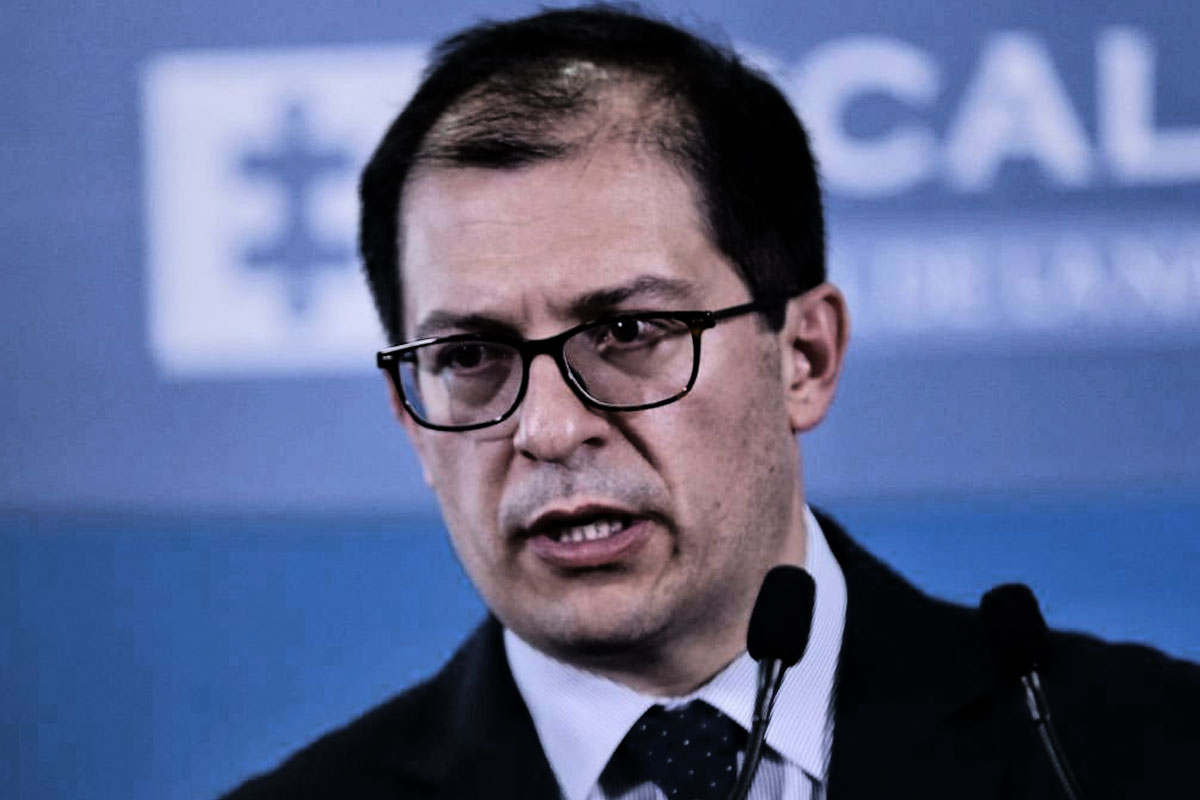by Adriaan Alsema July 6, 2021

Painting florifying the "First Line" protesters by artist Dario Ortiz
While many in Colombia praise the kids who have protected anti-government protesters against police brutality, authorities are desperately trying to criminalize these so called “First Line” groups.
According to Prosecutor General Francisco Barbosa, the collective of local groups are “gangs” and one is guilty of terrorism, though he failed to produce any evidence.
Meanwhile, the chief prosecutor is under increasing pressure to investigate police brutality, which he has tried to avoid like the plague.
One would almost feel sorry for Barbosa who has been at the center of controversy since taking office last year for bungling virtually all his responsibilities due to his mind-boggling incompetence.
The troubled prosecutor hasn’t had the easiest job as hiding the evidence that links President Ivan Duque to drug traffickers is a lot cause, not to mention the evidence indicating that former President Alvaro Uribe is nothing but a mafioso.

Prosecutor General Fransisco Barbosa
The First Line’s popularity
Meanwhile, the First Line groups enjoy broad support in their respective communities, especially those who have suffered most from the extremely violent efforts to crack down on the protests.
These urban communities have gone as far as providing the protesters with food and have praised the “First Liners” for their bravery in the face of almost unprecedented police brutality.
A collective of defense attorneys, the “Judicial First Line,” has additionally gathered hundreds of of volunteers who provide the youthful protester with legal aid against the apparent persecution by the government.
Unaccustomed to voluntary support for anti-government protesters, the prosecution has been trying to find evidence of illegal financing of these groups.

Residents in Yopal preparing a community meal for the local First Line groups.
Increasing evidence of a mafia government
Babosa is clutching at straws as Defense Minister Diego Molano and General Jorge Luis Vargas of the National Police are facing accusations of committing crimes against humanity.
Furthermore, regional police commanders throughout the country have been accused of teaming up with armed civilians to to put an end to the protests.
The commander of the Medellin Police on Saturday announced investigations into local cops for allegedly colluding with armed civilians in an operation to end protests on Saturday.
Cali already lost its police chief after evidence emerged indicating he tried to cover up police collusion with armed civilians in an attack on indigenous protesters.
Two weeks after a court ordered the prosecution to release protesters from the town of Armenia due to a lack of evidence, the prosecution on Monday again arrested alleged First Line protesters based solely on “presumptions”.
Seven people who were captured were allegedly part of the self-styled Primera Línea in Armenia. It is presumed that they participated in acts of terrorism and vandalism in municipalities of Quindío.
Prosecutor General’s Office
The collapse of the “Mafia puppet president”

President Ivan Duque (Image: President’s Office)
US lawmakers last week approved a resolution that blocked one third of the National Police’s counternarcotics budget until Barbosa effectively prosecutes police who allegedly murdered 40 protesters.
The chief prosecutor has been trying to avoid doing exactly that as these prosecutions could lead to evidence of the high-level involvement in crimes against humanity as claimed by the opposition.
Barbosa doesn’t seem to have either the capacity or the ability to protect the police or Duque, the chief prosecutor’s friend of more than 25 years.
Meanwhile, there is no indication that First Line protest will end before the president leaves office in August next year to go down as the “worst president in history”.
No comments:
Post a Comment